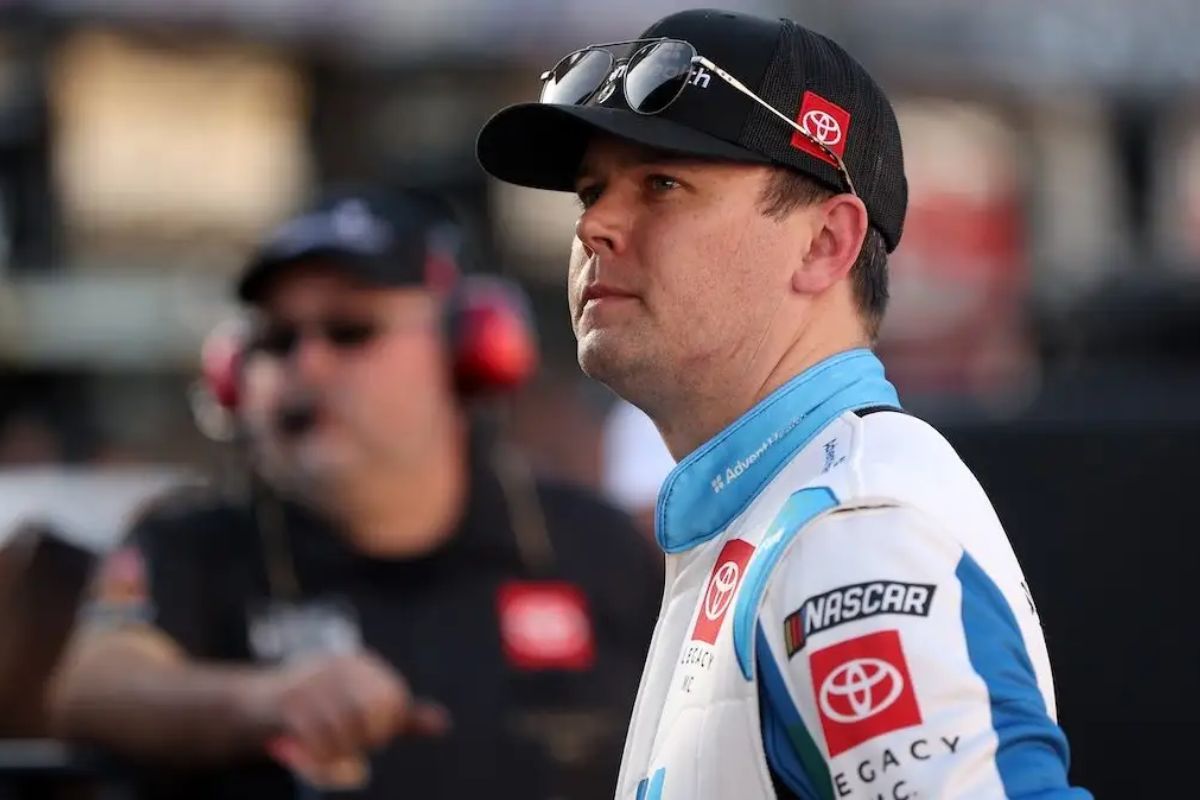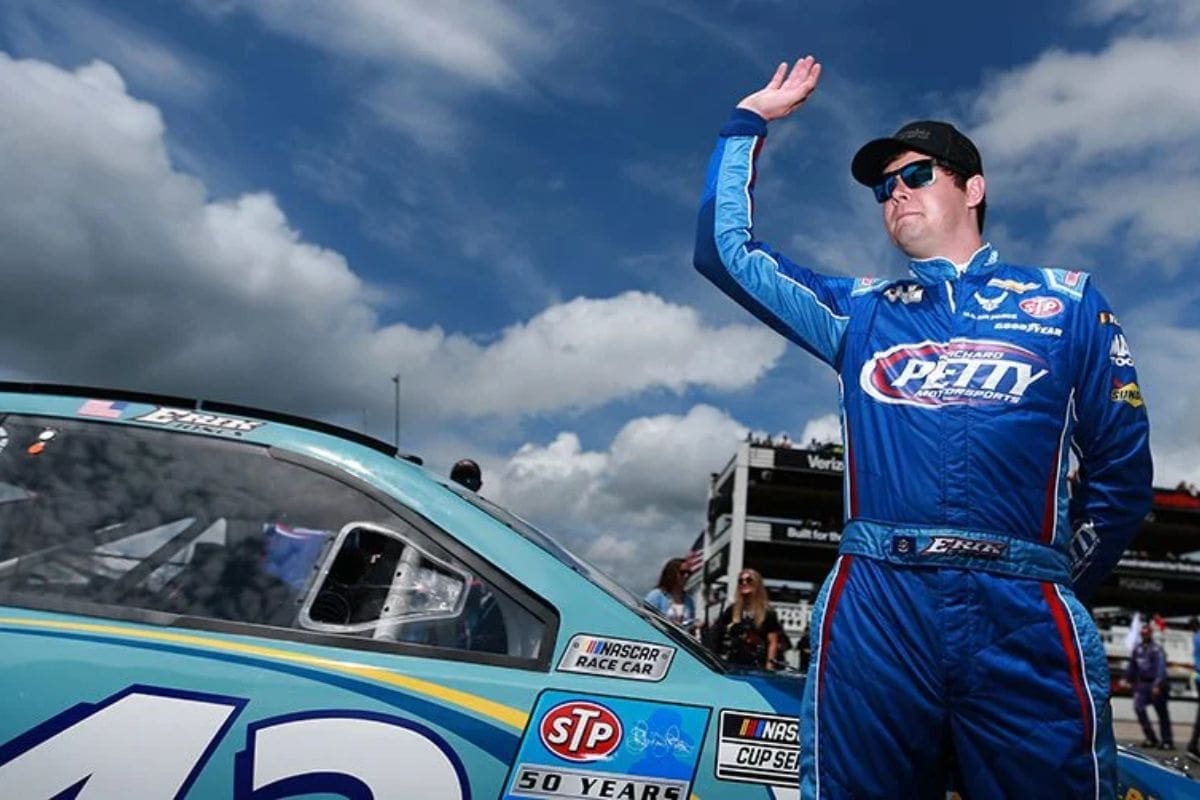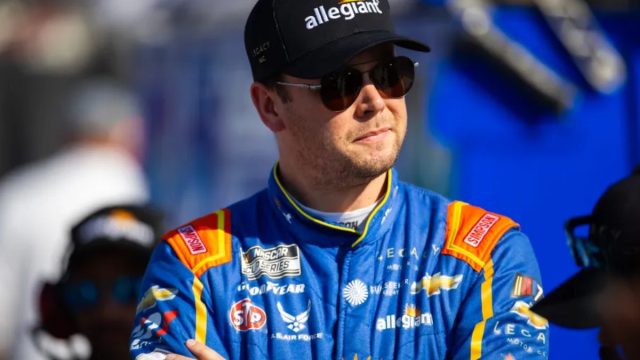Erik Jones Next Gen Defense: In the wake of Erik Jones’ recent defense of NASCAR’s Next Gen car following his crash at Talladega, a complex debate has ignited across the motorsports landscape. Critics argue that Jones’ endorsement, under the glare of intense media scrutiny, may gloss over deeper, unresolved safety issues inherent to the vehicle’s design. This controversy not only highlights the need for a thorough reassessment of the Next Gen car’s safety credentials but also raises pertinent questions about the influence of driver endorsements in shaping public and professional perceptions of technology in high-stakes racing environments.
Key Takeaways
- Erik Jones defended the Next Gen car despite his severe crash at Talladega, causing mixed reactions.
- Fans expressed skepticism towards Jones’ positive statements about the car’s safety.
- The incident led to heightened scrutiny and debate about the Next Gen car’s safety standards.
- NASCAR faces pressure to conduct a thorough investigation and improve safety measures.
- Jones’ defense highlights a potential divide between driver endorsements and fan concerns about safety.
Next Gen Car and Safety Concerns
While crafted to improve the racing experience, the Next Gen car has instead faced criticism for its performance and raised significant safety concerns, highlighted by the severe crash involving Erik Jones at Talladega in GEICO 500. Introduced with the promise of advanced competition and safety, the Next Gen car has paradoxically fostered a level of parity that has culminated in underwhelming race dynamics. This shift towards uniformity was intended to tighten the field, yet it has also led to a homogenization that many purists argue strips away the distinct strategic elements that teams used to exploit to their advantage.
Moreover, the engineering ethos behind the Next Gen car was to incorporate advanced safety features that would mitigate the risks inherent in high-speed racing. However, the feedback from the track has painted a different picture. Drivers and teams have reported multiple instances where the car’s response to crashes did not meet expectations, suggesting a discrepancy between theoretical safety enhancements and their practical application.
The safety concerns are particularly poignant in view of incidents like the Erik Jones crash, where the resilience of the Next Gen car’s safety mechanisms was put to a rigorous test. Such events force stakeholders to confront the possibility that in pursuit of parity and advanced competition, critical aspects of driver safety may have been compromised.

Erik Jones’ Crash and Safety Issues
The severe crash involving Erik Jones at Talladega starkly underline the persistent safety concerns with NASCAR’s Next Gen car, despite claims of improved security measures. The incident, which resulted in a compression fracture in Jones’ lower back, poses critical questions about the vehicle’s ability to protect drivers under extreme conditions. This injury is particularly alarming given the Next Gen car’s touted advancements in driver safety.
Jones, in an attempt to mitigate concerns, compared his crash to Ryan Blaney’s incident at Daytona, where Blaney emerged without serious injury. Despite the comparison, the outcomes of these crashes reveal inconsistencies in the Next Gen car’s safety performance. Jones’ experience suggests that although the car may generally perform well, there are scenarios where its protective capabilities could be compromised.
“The Next-Gen car gets a bad rap. At the end of the day, I think the car did its job.”-Jones
| Aspect | Details |
|---|---|
| Event | Talladega Crash |
| Injury | Compression fracture in lower back |
| Comparison | Ryan Blaney’s Daytona incident |
| Car Model | NASCAR Next Gen |
| Driver’s View | Car did its job, despite injuries |
Erik Jones after his injury: "The Next Gen car gets a bad rap. At the end of the day, I think the car did its job."
— Jeff Gluck (@jeff_gluck) April 27, 2024
Fan Reactions to Erik Jones’ Statement
Erik Jones’ recent defense of NASCAR’s Next Gen car sparked a significant backlash from fans online, who expressed skepticism and concern over the vehicle’s safety. The reaction was swift and multifaceted, reflecting deep-seated anxieties about the car’s performance and implications for driver safety. Many fans articulated a sentiment that Jones, possibly under pressure, had to publicly vouch for the safety of the vehicle, despite his recent harrowing experience on the track.
“He’s gotta say something like this. What’s dude gonna do, bad mouth the car and get in trouble? He’s doing his job. We all know this car is a flop.”
“The NASCAR official standing next to Jones lowers the gun and walks away”.
“We’ve seen more injuries in the last 2 years than we did in the last 20. This car is a problem”.-fans reaction
Furthermore, the jesting remark about a NASCAR official metaphorically ‘lowering the gun’ as Jones spoke underscored the perceived coercion. It highlights a critical questioning of the authenticity of drivers’ public endorsements of their equipment.
On platforms like Reddit, the intensity of fan engagement shows a vibrant community deeply invested in the safety and integrity of the sport.
“It’s a deepfake, the real Erik died in the hospital”- fan on reddit

Call for NASCAR Action
Amidst the growing unrest and skepticism among fans, there is a pressing need for NASCAR to address the safety concerns surrounding the Next Gen car, particularly considering Erik Jones’ recent incident. While Jones emerged unscathed, the mysterious circumstances of his injury highlight potential vulnerabilities within the car’s design that could pose risks to driver safety in the long term.
The lack of clarity surrounding the specific mechanics of Jones’ incident is particularly troubling. It suggests that even with the advanced safety measures currently in place, there may be unforeseen issues that could compromise driver safety. The ambiguity also destabilizes the confidence of the drivers and teams, potentially impacting their performance and approach to racing. Hence, it is imperative for NASCAR to conduct a thorough investigation, engaging with engineers, safety experts, and the drivers themselves to dissect what went wrong in Jones’ case.
Furthermore, this investigation should not be insular. NASCAR must adopt a transparent approach, regularly updating the stakeholders about the findings and the steps being taken to mitigate such risks. This transparency will not only bolster the trust of the participants but also reassure the fans about the sport’s commitment to safety.

News in Brief: Erik Jones Next Gen Defense
The controversy surrounding Erik Jones’ defense of the Next Gen car illuminates the critical need for ongoing evaluation and improvement of safety protocols in NASCAR. The fan reactions underscores the community’s significant investment in driver welfare and the integrity of the sport.
It is imperative that NASCAR heed these concerns by intensifying scrutiny of the Next Gen car’s safety features, thereby reinforcing their commitment to safeguarding drivers and maintaining the sport’s esteemed reputation.
Our Reader’s Queries
Q: Has Erik Jones ever won a NASCAR race?
A: Launching his 2020 campaign with a bang, Jones clinched victory at the Busch Clash at Daytona International Speedway. Notably, he triumphed at the 2019 Southern 500 at Darlington Raceway. Steering for Joe Gibbs Racing, his maiden Cup win came in a thrilling showdown against Martin Truex Jr. at Daytona in July 2018.
Q: Who does Erik Jones drive for in 2024?
A: In a statement from Statesville, N.C. on April 23, 2024, it was announced that Erik Jones, piloting the No. 43 Dollar Tree Toyota Camry XSE for LEGACY MOTOR CLUB™, will sit out this weekend’s NASCAR Cup Series race at Dover Motor Speedway. Stepping in for Jones is LEGACY M.C.’s reserve driver, Corey Heim, for the 400-mile showdown.
